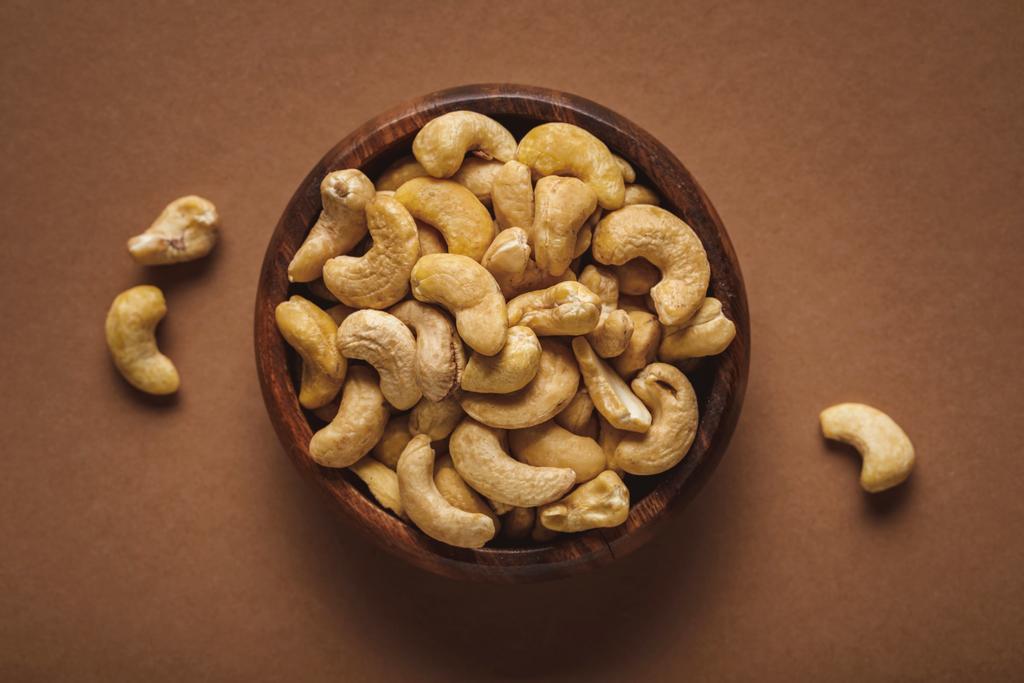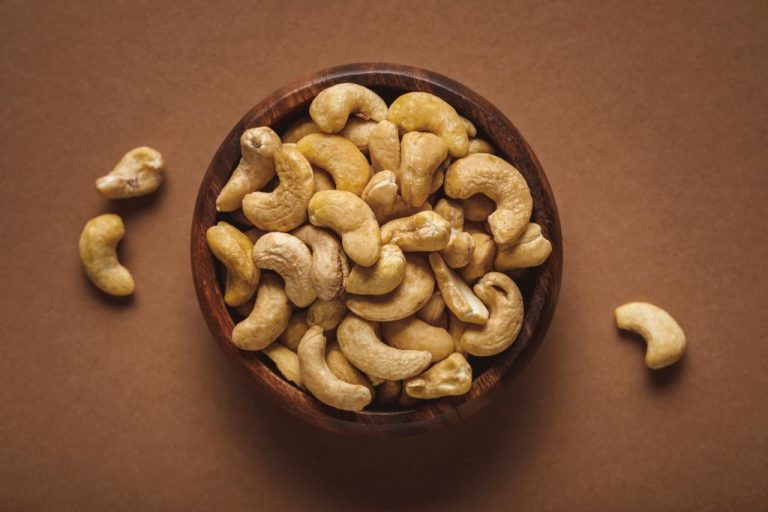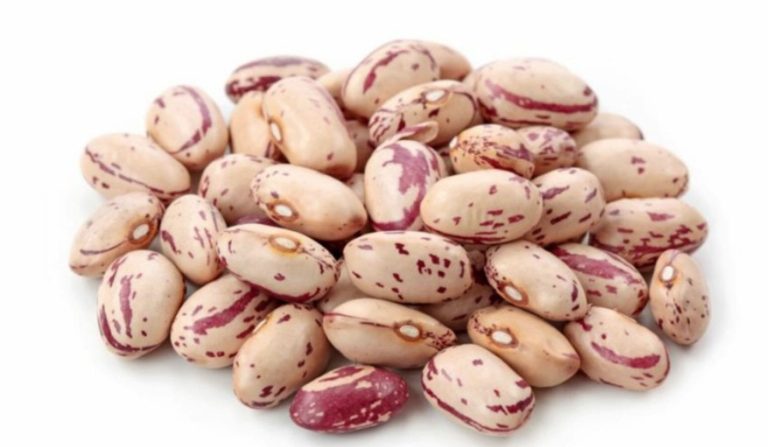Magnesium fulfills important tasks in the body. Utopia shows what effects it has, how to recognize a magnesium deficiency, why the deficiency is dangerous and which foods contain a lot of magnesium.
Magnesium is a mineral and part of the human body: In adults, the total content in the body is around 25 g. Most of it is found in the bones, muscles and soft tissue (fat, muscle and connective tissue). The human body depends on magnesium as a vital mineral: It is involved in numerous processes in the body. Therefore, it is important to get enough of this mineral in the diet and eat foods rich in magnesium.
What does the body need magnesium for?

Magnesium regulates a large number of biochemical processes in the human body: it is important for muscle contraction, cardiac activity, communication between nerve cells and between nerve and muscle cells. The mineral is also of great importance for fat and carbohydrate metabolism and is involved in the formation of bones and teeth.
The German Society for Nutrition (DGE) revised the reference values for intake in 2021: Since there is currently insufficient study data, the DGE no longer specifies values as recommended intake, but estimates for an appropriate intake. For adults, these estimates are 350 mg per day for men and 300 mg per day for women. Lower values apply to children.
Which foods contain a lot of magnesium?
Many common foods contain magnesium. As a simple rule of thumb, whole grain products, nuts and seeds are rich in magnesium.
Contain the most magnesium:
- Whole grain cereal products such as whole wheat bread and whole wheat pasta
- brown rice
- Nuts, such as hazelnuts and cashews
- Seeds and kernels such as sunflower seeds, pumpkin seeds, flaxseed and sesame
- Legumes such as peas, lentils, beans and soybeans
- Leafy green vegetables like chard, spinach
- cocoa powder and dark chocolate
If you eat a lot of fruit and vegetables and have whole grain products on your menu regularly, you have enough magnesium. Supplementing with food supplements is rarely necessary, since the vast majority of people in Germany are well supplied with magnesium.
What happens when there is a lack of magnesium?
In Germany, the lack of magnesium is most likely to occur in people with alcoholism. People who suffer from diseases of the digestive system (chronic inflammatory bowel diseases or a bile acid deficiency) are also at risk of deficiency: Gastrointestinal disorders such as acute or chronic diarrhea, vomiting, malabsorption or small intestine resections can disrupt the absorption or excretion of magnesium. In older people, medication for dehydration can also lead to increased excretion of magnesium.
The deficiency becomes apparent at very low serum concentrations of less than 0.5 mmol/l. When the body is deficient in magnesium, various symptoms occur:
loss of appetite
nausea
Vomit
Cramps and overstimulation of the muscles
numbness and tingling
drop in body temperature
Tiredness and general weakness
In the long term, a magnesium deficiency can lead to calcification of the blood vessels and kidneys. In addition, the connection between a lack of magnesium and disorders of the cardiovascular system is discussed.
Does Magnesium Help With Muscle Cramps?
Many people take magnesium supplements to prevent or treat muscle cramps, but does it really work? According to the DGE, there are no significant effects of taking magnesium on the severity and duration of nocturnal muscle cramps in adults.
In addition to a lack of magnesium, muscle cramps can have many other causes: It is often due to the muscles being under- or over-strained, for example through sport, a malposition or the wrong shoes. Muscle cramps can also be caused by insufficient fluid intake or electrolyte imbalances. In general, a medical examination is advisable in the case of frequent cramps in order to get to the bottom of the cause.
What happens when there is an oversupply of magnesium?
An oversupply of magnesium through food is very unlikely and no negative effects have been observed so far. However, when taking magnesium supplements, excessive intake of medication or reduced excretion, overdoses with unpleasant consequences can occur: Diarrhea and gastrointestinal complaints can occur from an additional magnesium intake of 300 mg per day. Higher doses can cause nausea, vomiting, and reddening of the skin. Doses of more than 2500 mg per day can lead to very dangerous side effects such as muscle weakness or a drop in blood pressure.
How do magnesium supplements perform in the test?
For complaints such as headaches, menstrual cramps or muscle cramps, many people use magnesium supplements – but that doesn’t really make sense: In a study, the consumer magazine Öko-Test did not rate a single one of the 24 tested preparations as recommendable. Öko-Test names the high dosage of the products as the main point of criticism: 17 of the products exceeded the maximum recommended quantity of 250 milligrams by the Federal Institute for Risk Assessment.
The lack of important information on intake, such as the lack of warnings, was also criticized. In addition, the study indicates that supplementing with food supplements usually only makes sense for people with an actual deficiency. Before taking magnesium supplements, it is therefore better to seek medical advice and then, if necessary, have an appropriate medication prescribed. As an alternative, Öko-Test also recommends a wholesome and balanced diet.
Does magnesium help against diseases?
Magnesium is associated with a variety of diseases – but what is actually behind it?
Does magnesium help against migraines and headaches?
Migraines and headaches are sometimes associated with magnesium deficiency. There are studies that have examined the connection – but the data is poor. It can definitely be worth a try for migraines, but you shouldn’t expect miracles: in people for whom magnesium helps with migraines, the frequency and intensity of migraine attacks are reduced somewhat – but the symptoms don’t go away.
Magnesium has a preventive effect against kidney stones
Anyone who has ever had kidney stones will never forget the pain! Kidney stones are hard deposits of minerals in the kidney. They form when too many minerals get into the urine. They are usually so small that they are easily excreted. However, when they get bigger, they can block the ureter and cause severe pain. A magnesium-rich diet can prevent kidney stones: Magnesium inhibits the growth of calcium oxalate stones.
Magnesium can lower blood pressure
A meta-study examined whether magnesium affects blood pressure: It was shown that supplementation with magnesium has a positive effect on blood pressure – people with high blood pressure, insulin resistance, diabetes and cardiovascular diseases in particular can benefit from it.
Magnesium can prevent depression
Many people with depressive moods also suffer from nutrient deficiencies. In addition to vital and brain-relevant substances such as essential fatty acids and various vitamins, magnesium is also associated with depression. Deficiencies can promote depression and depressive moods. A balanced and healthy diet is also important for mental health.
Magnesium can help with tinnitus
Magnesium can be helpful against tinnitus: the mineral blocks a specific receptor on the cell membrane, so less calcium flows into the cell. This reduces cell damage to the auditory cells that could otherwise lead to tinnitus. Some tinnitus patients were able to achieve an improvement in this way. Magnesium can also help prevent exposure to noise, such as when going to a concert or shooting.
Magnesium for menstrual cramps

Magnesium can help against symptoms during menstruation: If you have problems with cramps during your period, you should make sure you are getting enough magnesium before you start bleeding. Cocoa powder, sesame, pumpkin seeds, sunflower seeds and legumes should now be on the menu.






